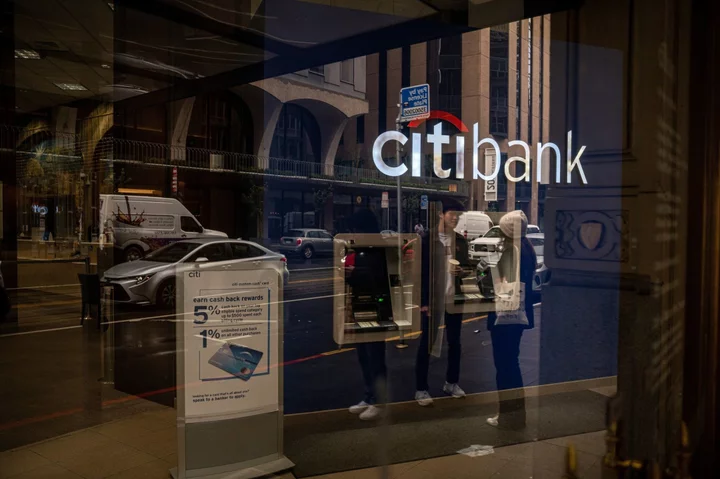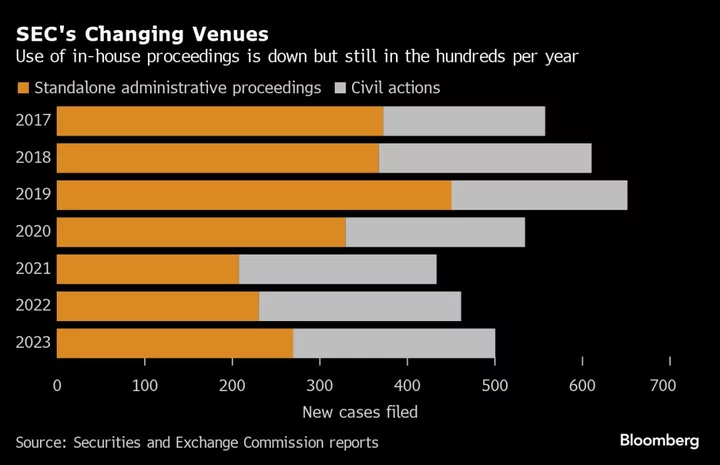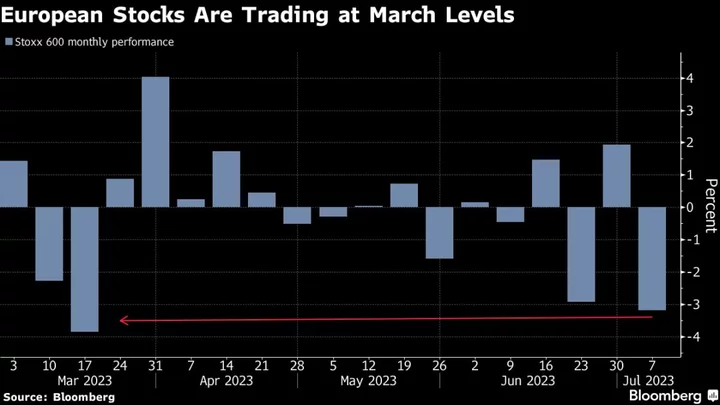Turkey’s central bank lifted its inflation outlook sharply higher for the next two years on Thursday, a shift that likely signals interest rates have further to rise even after five large hikes.
Governor Hafize Gaye Erkan announced a new end-2023 estimate of 65%, up from a previous forecast 58%, and said price growth will finish next year at 36% in a revision from 33%. Speaking at an event in Ankara, Erkan said she expects disinflation from the second half of next year.
The quarterly report has taken on new prominence since Erkan’s appointment in June, with officials now saying they want to tether monetary policy to the projected path for consumer prices, as opposed to the current inflation rate. Bloomberg Economics expected its outlook to be lifted by around 10 percentage points for this year and next.
As attention turns to next year, the inflation momentum has shown little sign of slowing, though price increases are decelerating on a monthly basis.
In annual terms, price growth is running at more than 12 times the official target and probably accelerated close to 62% in October, according to the median forecast of economists surveyed by Bloomberg.
Shocks, Taxes
Erkan attributed faster inflation from June to September to “multiple shocks” and said recent tax hikes contributed 2.5 percentage points to the headline rate. The role of excessive domestic demand is now fading, she said, and some indicators for prices in October point to a decline in the underlying trend of monthly inflation.
The emerging picture for prices explains the urgency of a monetary tightening cycle that’s already more than quadrupled Turkey’s key rate to 35%. Immediately after the previous inflation report in July — which also revised the outlook sharply higher — President Recep Tayyip Erdogan named new members to the central bank’s decision-making body, a move followed by three large rate hikes of as much as 750 basis points.
Erkan, alongside officials such as Finance Minister Mehmet Simsek, has been at the forefront of a policy shift since Erdogan’s reelection in May, as a new team of technocrats unwinds unorthodox measures blamed for driving away foreign investors and causing a series of currency crises.
Investors have meanwhile been calling for a more hawkish stance from the central bank, given that policy rates remain well below zero when adjusted for current inflation. Global lenders like Morgan Stanley and JPMorgan Chase & Co. see Turkish hikes peaking only when the benchmark reaches 40%-45%.
Officials like Simsek have in turn argued they are focusing on the differential between deposit rates and expected inflation over the next 12 months, which indicates policy is already tighter than it appears otherwise.
--With assistance from Baris Balci and Patrick Sykes.









